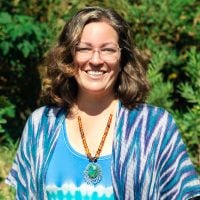“If you assume that there’s no hope, you guarantee that there will be no hope. If you assume that there is an instinct for human freedom, there are opportunities to change things, there’s a chance you may contribute to making a better world. That’s your choice.”
~Noam Chomsky
Before moving to Guatemala in 2009, I was totally ignorant of Central America.
After three frenzied years at a bilingual elementary school in Austin, I decided to seek an international teaching gig. Guatemala had my desired qualifications — Spanish-speaking, a temperate climate, relative proximity to Texas. And yet it is so far away.
I broke out in hives and became violently ill the day I was offered the job. It was a system overload; my brain could not absorb the news. I would be moving to Guatemala City in six weeks. Guatemala ended a 36-year civil war in 1996. Crime here is rampant. I would be leaving my secure, lovely life in Austin for someplace completely unknown. My mom and dad were discouraging me from going. Then, I read something very similar to this on the US State Department website:
Guatemala has one of the highest violent crime rates in Latin America. In 2009, approximately 25 murders a week were reported in Guatemala City alone. While the vast majority of murders do not involve foreigners, the sheer volume of activity means that local officials, who are inexperienced and underpaid, are unable to cope with the problem. Rule of law is lacking as the judicial system is weak, overworked, and inefficient. Well-armed criminals know there is little chance they will be caught or punished.
I wondered if I would survive but never seriously considered turning down the job.
Upon moving here and reading books and meeting people, I learned that the majority of Guatemalans are indigenous, descendants of the ancient Mayans. In the seventies and eighties, the Guatemalan government tortured and killed indigenous guerillas who were rising up against their mistreatment — as well as thousands of innocent people — in a genocide covertly supported by the CIA.
Today, there is an alarming crime rate for everything from pickpocketing to first-degree murder. It’s always a possibility, and in some places a probability. When I first arrived, I was careful to carry my cash in a money belt under my shirt, never walk at night, and never use my cell phone or iPod in public. Stories emerged of people being gunned down outside their homes, murdered for money or drugs or lies.
The city (“Guate,” as it is affectionately known) is divided into zones. Zone 1 is “downtown,” where the National Palace, central market and main Cathedral are located. I live in zone 15, an almost suburban neighborhood with lush vegetation and peaceful citizens walking their dogs morning, noon and night. Though we do have armed security guards who drive around on their motorcycles 24/7.
I’ve personally interacted with some of the richest and some of the poorest people in this nation. Most of my students come from extreme wealth and privilege. By no fault of their own, they have had a lifelong sense of entitlement. They all have maids and nannies. Some have multiple bodyguards.
I’ve volunteer taught yoga to children who live in the slum next to the city garbage dump. These kids live surrounded by the stench and toxicity of trash, whose parents sort through the landfill, scavenging food, clothing, furniture, anything recyclable. On the drive to teach yoga at Safe Passage, in the windy maze of zone 3, near the dump, someone is invariably slumped against a building or passed out in the street, obliterated from sniffing glue, trying to escape the squalor in which he lives. Poverty is too nice a word for it. It is squalor: stench, drab colored bits of trash everywhere, toxic gases brewing in the landfill. Huge sacks of trash and recyclables overflow from the windows and doors of the shoddy homes lining the streets.
Guatemala’s problems (global problems) are unfathomably deep and wide and daunting. In the case of zone 3, all I can do is show up and lead a yoga class. When the kids are in downward dog, maybe for a brief moment they’re not thinking about their home life or personal problems. They hiss like snakes in cobra pose, laugh and topple out of tree pose. It is a time to play, to wonder. They are breathing and stretching, cultivating body awareness and perhaps even a little self-love. They are learning to balance and focus and stretch beyond prior limitations.
Yoga will not cure their poverty. But teaching them yoga shows them that someone cares about them. And their practicing yoga proves that they care, too.
If you look at the big picture, in Guatemala, in the United States, across the globe, it seems impossible to scratch the surface of suffering. We must stay informed and act with compassion and mindfulness. Donate. Lend a hand. Smile. Make eye contact. Listen. Love.
Most of all, persist. Sometimes it’s hard, and the deeper you go, the more there is to heal, and to cry about. Nevertheless, I will keep trying. We will keep trying. For Guatemala. For all beings.
See more photos and read the complete essay on the yoga schmoga blog.











Read 5 comments and reply